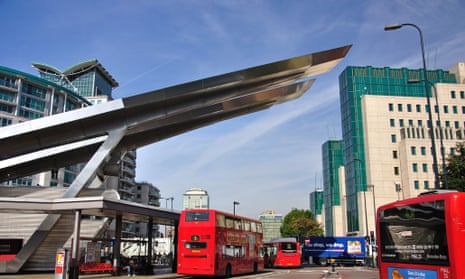Greener cities would be cheaper to build
About 80% of the world’s economic output comes from cities, but they also account for 70% of energy use and associated emissions. At least 1bn people are expected to swell the population of developing world cities in the next 15 years, but if that growth is unstructured and unplanned it will incur economic, social and environmental costs – a lower quality of life for city residents, and problems for the future in global warming.
This does not need to be the case, as cities can be planned on sustainable lines with better quality of life, mass public transport, green spaces and better amenities – all of which will also enhance economic growth. Development on these lines could reduce the capital requirements for urban infrastructure by more than $3tn (£1.85bn) over the next 15 years, the report found.
We need to repair farmland
With the global population set to top 8bn by 2030, feeding the world will be an ever harder task. Increasing the productivity of existing agricultural land will be key.
If an eighth of the world’s degraded agricultural land were restored using modern techniques, it could feed 200m more people by 2030, and lead to lower greenhouse gas emissions.
Renewables could soon provide half of our new electricity supply
Clean energy systems will be crucial. The costs of key renewable energy technologies, especially wind and solar power generation, have fallen rapidly, and low-carbon energy could account for more than half of all new electricity generation within 15 years. Energy efficiency must also be pursued, lowering costs and improving economic productivity. These moves could also help to provide electricity for the more than 1bn people who currently do not have it.
Fossil fuel subsidies need to be ditched
We are using too many of the planet’s resources too profligately, and part of the reason is that our economies are geared not to value resources properly. For instance, subsidies for clean energy amount to only about $100bn a year, but fossil fuel subsidies top $600bn. Phasing out bad subsidies will supporting good ones could lead to a reallocation of resources to benefit economies and the poor.
Green bonds could fund a move to a low carbon world
A lack of public financing and support for low-carbon infrastructure means that capital is not being allocated to sustainable infrastructure, including low-carbon transport and industries. Financial instruments such as green bonds and risk-sharing between public and private institutions could cut the cost of capital for sustainable growth, for instance by up to about a fifth for low-carbon electricity alone.
R&D will be crucial
New technologies and the promotion of existing low-carbon industries could play a strong role in driving economic growth while cutting emissions. This must encompass IT and communications, innovation in materials, life sciences and other aspects of technology. This will require well-targeted public expenditure on research and development as well as the removal of market barriers to new technologies and business models.
It won’t work without governments’ help
All of these will require new policies and a stable regulatory framework to encourage growth and investment along sustainable lines. The report recommends setting a price on carbon, committing to an end of deforestation globally by 2030 with appropriate support for forested nations, the restoration of at least 500m hectares of lost or degraded forests by the same date, and a ban on new unabated coal-fired power plants in developed countries immediately, and in rapidly developing countries (middle income countries) by 2025.







